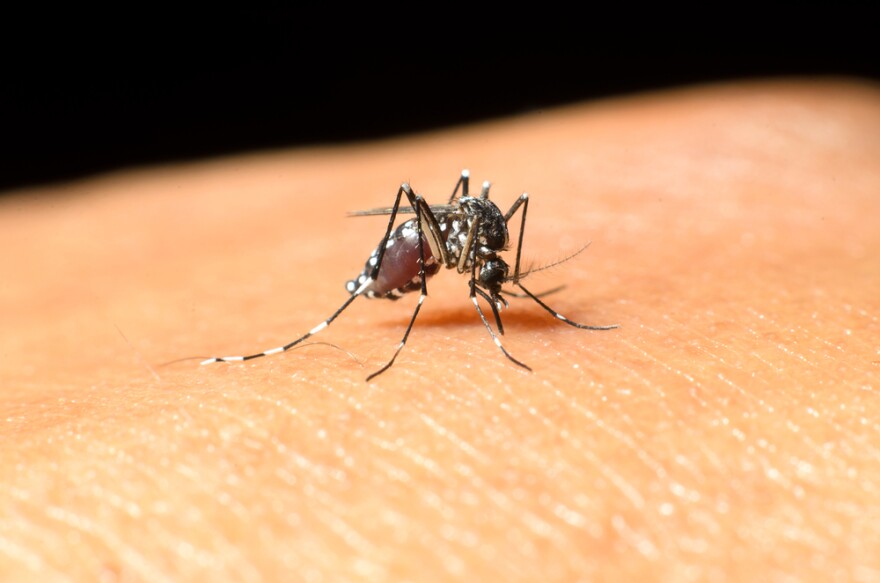West Nile Virus season usually shows up in Texas in June, but it came early this year. About two weeks ago, Mesquite had the first mosquito trap in Texas this year to test positive for West Nile. Harris County reported the state’s first human case around the same time.
In our consumer health series, Vital Signs, Dr. Jade Le, an infectious disease specialist with Parkland Hospital and an assistant professor of internal medicine at UT Southwestern Medical Center, says the heavy rain we’ve had may indicate the season ahead.
Highlights from Dr. Le’s Interview…
Will the heavy rainfall affect this year’s West Nile season: The more rain you have, the hotter the season it is, the more mosquitoes you will see. And the amount of mosquitoes who are infected with West Nile virus will depend on how many birds carry West Nile virus in their bodies.
Did we have fewer cases last year? Compared to 2012, when there were more than 1,700 cases in Texas, last year there were only about 350 cases.
What accounts for that? When all the birds have been affected by West Nile virus the first time, the mosquitoes get infected, they infect us humans. In subsequent seasons, because these birds have already been infected, it’s as if they’ve been immunized. So they don’t carry as much virus in their bodies, and that’s what we notice: If a location has been hit by a severe West Virus outbreak, the next few years tends to be extremely mild because of it.
What is West Nile virus? A virus transmitted through the bite of infected mosquitoes. Most of us who get bitten by mosquitoes with West Nile virus will have no symptoms. One in five of us will have symptoms such as fever, body aches and not feel so well. And a real small percentage – hopefully less than that 1 percent – will have West Nile neuroinvasive disease. That’s the West Nile we all fear and we all worry about.
Risk factors for West Nile: Those who are older than 50. Those who have medical conditions such as cancer, there immuno-compromised, such as transplant patients, diabetes, high blood pressure, kidney disease. So if you have some form of medical illness you are more likely to have the more severe form of West Nile virus.
Treatment for West Nile: No cure at the moment. The only treatment that we offer tends to be supportive treatment. The symptoms, if you just have fever, you may try over-the-counter medications to reduce your fever. If you have any severe manifestations of West Nile, then you will probably need to enter a hospital and get supportive care.
Prevention of West Nile: Avoid mosquito bites. Drain standing water. Dress in long, loose clothing. Wear insect repellent with DEET. Avoid going out without DEET or without wearing long, loose clothing at dusk or at dawn, the time the mosquitoes are most active and hungry.
For more information






